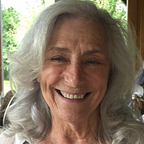Rotterdam’s IFFR 2018: Jewish Films
The Netherlands have always had a special place for Jews. Not always loved, but always protected, Amsterdam calls itself “Mokum” meaning “The Place” in Hebrew and Rotterdammers say “Mazel Tov” when they mean congratulations and all toast with “Daar Ga Je” which in Dutch sounds like “Le Cha’im”.
Jewish movies this year included two Russian films and films which while inclusive of Jews were not “Jewish” in nature.
Anna’s War, directed by Alexey Fedorchenko (2018, Russia, 75 minutes), is about a 6-year-old Anna whose entire family dies in the mass coordinated execution of Jews. The mother covers up Anna with her own body, and the girl miraculously survives. For the next few hundred days Anna hides in the disused chimney at the Nazi Commandant’s office. From her shelter she watches as life passes her by until the village is liberated from the Nazis. In these inhuman conditions Anna not only survives but keeps her humanity. Many factors help her: memories from the life swept away by war, the cultural foundations laid by the parents and a friend who saves her from loneliness.
The other Russian Jewish film, Closeness is in the Bright Future section. Directed by Kantemir Balagov. (2017, Russia, 118 minutes) it takes place in 1998, Nalchik where a Jewish family is in trouble: the youngest son and his bride do not come home, and in the morning, a ransom note arrives. The ransom is so high that the family is forced not only to sell its small business, but also to seek help from fellow tribesmen. It premiered in Cannes’ Un Certain Regard in 2017.
Homogeneous, Empty Time directed by Thunska Pansittivorakul and Harit Srikhao (2017, Thailand and Germany, 103 minutes), is a documentary which gets its title from German-Jewish philosopher Walter Benjamin: nationalist ideologies always develop in ‘empty time’, in places where people share a ‘homogeneous consciousness’.
Based on this idea, the film observes the causes of rising nationalism in Thailand without comment. Various groups are observed, from military cadets to Buddhists, Muslims and the pupils of a Christian boarding school. Their opinions vary wildly on many subjects, but what unites them is boundless confidence in the monarchy and a recurring sentiment, “ruling is for soldiers, not for civilians”.
Documentary makers Thunska Pansittivorakul and Harit Srikhao shot Homogeneous, Empty Time between the 2014 military coup and the death of King Bhumibol Adulyadej in October 2016, as the military leaders consolidated their grip on society and countless political opponents were imprisoned.
Razzia in the Limelight section is directed by Nabil Ayouch. (2017, France, Morocco, and Belgium, 109 minutes)
Director Nabil Ayouch stirred controversy in his native Morocco with the successful Much Loved and its honest depiction of prostitution. The scope of Razzia is larger, encompassing the whole of Casablanca society through several characters, their dreams and personal story lines: a young wife stuck in an abusive marriage who refuses to conform with the traditional stereotypes of women; a Jewish restaurant owner caught between his desires and his heritage; an aspiring singer and Queen fan who wants to break free; a spoiled teenager discovering her sexuality.
This dense juxtaposition of destinies, troubled loves, frustrations and inner tensions is a perfect mirror of contemporary Morocco. Ayouch piles them upon one another as a countdown to an unavoidable, explosive conclusion and a cry for freedom: razzia means ‘raid’ in Arabic, and the film sizzles with urgency and necessity.
Them directed by Artur Żmijewski (2007, Poland, 27 minutes) brings together Polish nationalists, Jewish liberals, Catholic ladies and left-wing firebrands in a series of workshops focused around the way we imagine our own ideas. Each group created an emblem to illustrate their own convictions. Then they got the chance to respond to one another’s creations. Painting, cutting and pasting was never so politically charged.
The Reports on Sarah and Saleem in the Hivos Tiger Competition is directed by Muayad Alayan (2018, Palestine, Netherlands, Germany, and Mexico, 127 minutes).
The affair of a married Palestinian man and a married Israeli woman in Jerusalem takes a dangerous political dimension when they are spotted in the wrong place at the wrong time leaving them to deal with more than their broken marriages.
She’s Jewish and he’s Palestinian. In divided Jerusalem, this goes way beyond the private. Then Sarah and Saleem are seen together in a club in Bethlehem, and it’s not long before Saleem has the security services from both sides breathing down his neck. A simple extramarital affair becomes a spy sensation, which is given an extra political dimension by the fact that Sarah’s husband is a high-ranking officer in the Israeli army.
This crippling supervision of the personal — in the form of state surveillance and social control — on both sides of the wall dividing Israel and Palestine was previously tackled by director Muayad Alayan in several short films, as well as in his feature Love, Theft and Other Entanglements (2015). His brother and regular filmmaking partner Rami wrote the screenplay for The Reports on Sarah and Saleem, their second feature, which leads us step by step into a world where it is all but impossible not to get caught up in politics.
